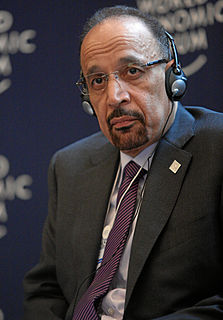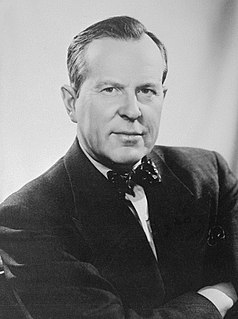A Quote by Estelle Morris
However, the Government has made it clear that we do not encourage the recruitment of teachers from developing nations where there may be an adverse effect on the economy.
Quote Topics
Related Quotes
Global warming may be a 'crisis,' even 'the most pressing environmental problem of our time.' ... Indeed, it may ultimately affect nearly everyone on the planet in some potentially adverse way, and it may be that governments have done too little to address it. It is not a problem, however, that has escaped the attention of policymakers in the Executive and Legislative Branches of our Government, who continue to consider regulatory, legislative, and treaty-based means of addressing global climate change.
The proper role of government, however, is that of partner with the farmer -- never his master. By every possible means we must develop and promote that partnership -- to the end that agriculture may continue to be a sound, enduring foundation for our economy and that farm living may be a profitable and satisfying experience.
But I hope that by the decision and authority of wise princes that sometime devout and learned men from the churches of other nations and of ours may be summoned together to deliberate about all the controversies and that there be handed down to posterity one harmonious, true, and clear form of doctrine, without any ambiguity. Meanwhile, as far as possible, let us encourage the union of our churches with measured advice.

































